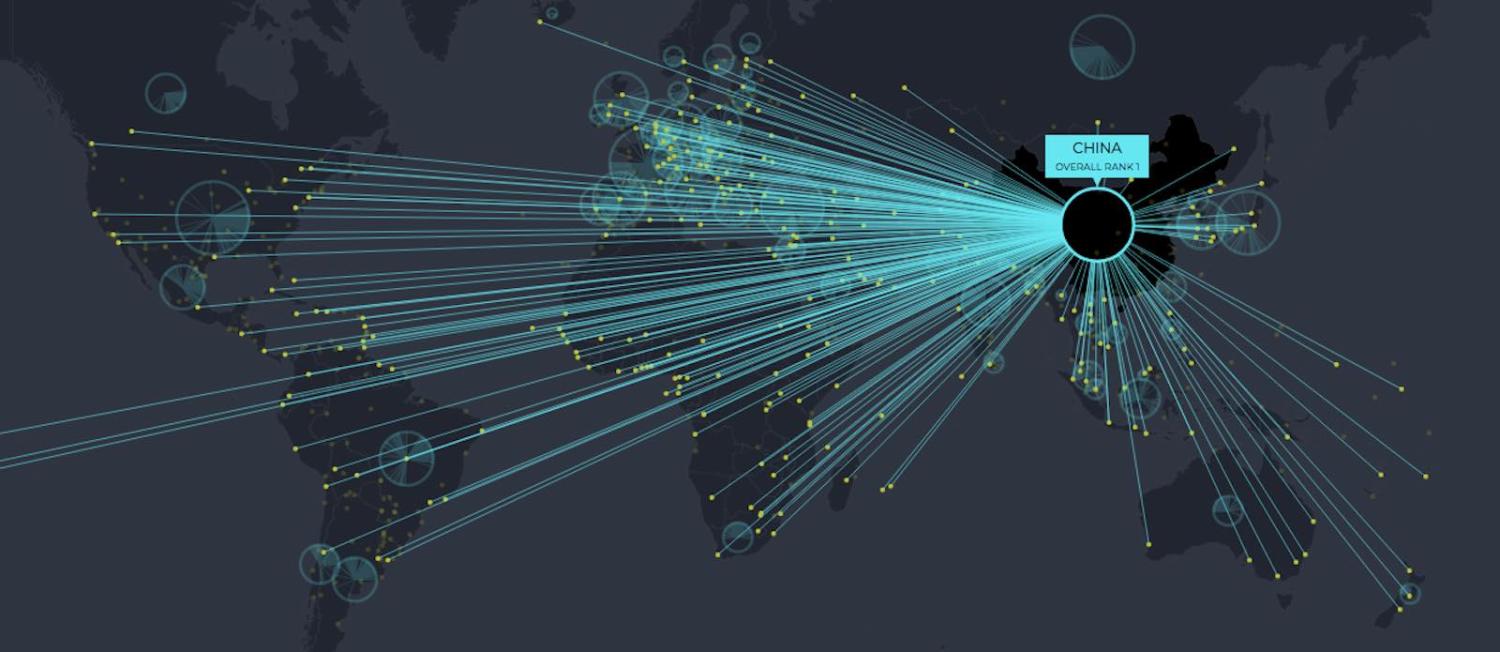Diplomats around the world are keeping busy. In an era where you’d be forgiven for thinking chequebook diplomacy, digital diplomacy, cricket diplomacy, and – of course – Twitter diplomacy form the basis of international relations, there is still a place for traditional diplomacy.
The 2019 Global Diplomacy Index, released on Wednesday by the Lowy Institute, takes stock of how the world’s diplomatic networks are expanding and shrinking. Of the 61 countries covered in the Index – among them all OECD, G20, and most Asian countries – 34 grew their networks between 2017 and 2019.
China has overtaken the United States to have the largest diplomatic network
With 276 posts globally, China has for the first time surpassed the United States’ network by three posts.
In two years, Beijing has grown its network by five diplomatic posts, following the opening of seven new missions and the shutdown of two. It’s ascent to the top spot has been rapid. In 2016, China was in third place behind the US and France, and by 2017 it had moved to second place ahead of France.

United States diplomacy has entered a period of limbo
At the same time, the United States’ diplomatic presence has been marginally eroded since 2017. Without any new openings in recent years, and after closing the doors of its consulate-general in St Petersburg in 2018 amid rancorous relations with the Kremlin, Washington’s total posts are down one post to 273.
With a hollowed-out State Department – only 73% of key positions are filled, according to the Washington Post’s tracker set up for this purpose – and the Trump administration’s attempts to cut the State Department and USAID budgets by up to 23%, American diplomacy is looking rudderless.
But the US remains – by a wide margin – the most popular place for countries to maintain embassies and consulates. The US is home to some 342 posts belonging to the 61 countries included in the Index. China, with 256, is a distant second.

China’s gains are Taiwan’s losses
Taiwan has seen the biggest drop in diplomatic posts, down from 22 embassies in 2016 to 15 today – and this has directly contributed to China’s lead over the US. Following persistent campaigns in targeted countries, Beijing has succeeded in picking off a handful of Taiwan’s last remaining diplomatic partners.
While Taipei has sent its diplomats home within hours of the announcements, Beijing too has been swift in establishing new embassies following the switches.
And while Taipei has sent its diplomats home within hours of the announcements, Beijing too has been swift in establishing new embassies following the switches. Beijing opened new embassies in Burkina Faso, the Dominican Republic, El Salvador, the Gambia, and São Tomé and Príncipe – all former diplomatic friends of Taipei.
Aside from leaving Taiwan increasingly isolated, these additions have been responsible for China’s newly held lead over the US.
Countries are bracing for Brexit – and are quicker off the mark than Britain.
The UK has been slow off the mark to become the “Global Britain” it promised. Despite Boris Johnson’s 2018 announcement of plans to open three posts in the Pacific, since 2016 it has seen no change in its number of embassies and has closed or downgraded 11 consulates and offices.
By contrast, Ireland boosted its network by eight places – the largest increase in diplomatic posts of any country in the Index. With its largest import partner and second largest export partner set to leave the European Union, Dublin has called it Ireland’s “Brexit strategy”. The Netherlands too has explicitly linked its diplomatic push to Brexit, adding seven posts in two years and more openings expected by 2021.

Japan’s diplomatic footprint quietly advances
With a total of 247 posts in 2019, Japan has moved into fourth place in 2019, overtaking Russia.
Faced with a shifting power balance in its neighbourhood, including an increasingly assertive China, Japan has been quietly investing in its diplomatic footprint for nearly a decade now. Since 2017, it has added seven new posts in strategically pivotal countries such as Cambodia, the Philippines, the Seychelles, and Vanuatu. This result follows a pattern of budget increases not only in defence, but also in public diplomacy under the auspices of the foreign ministry.
But Tokyo has been subtle in communicating these efforts, coupling broader soft-power initiatives such as the recent Rugby World Cup and 2020 Olympics with its growing diplomatic infrastructure, rather than opting for megaphone diplomacy.
Turkey’s foreign policy ambitions grow beyond the West
Turkey’s boosted diplomatic network, adding six posts since 2017, is keeping pace with its increasingly ambitious foreign policy and moves to diversify beyond its NATO allies. It ranks sixth for its diplomatic network, despite having less than half the GDP of fifth-placed Russia.
Despite Turkey’s “Asia Anew” policy released in August, these posts haven’t been concentrated in Asia. With the exception of a new embassy in Laos, Turkey has geared its diplomatic expansion towards Latin America and Africa.

